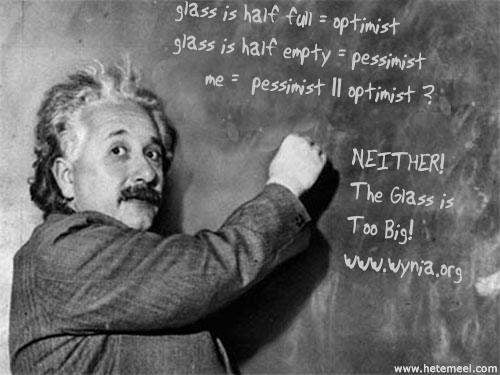
The phrase ‘genius’ has historically been reserved for the likes of Einstein, Da Vinci and Mozart, but a recent ongoing divorce case means the term is now under the microscope, writes Joanna Farrands
Usually, divorce has its inherent logic: after marriage, parties go their separate ways, with assets accrued during the marriage generally divided equally to reflect the joint nature of the partnership. But the courts have sometimes been minded to recognise an unequal contribution or star performance within a marriage.
But now meet Randy Work, a multi-millionaire financier, who does not on the face of it belong in the company of William Shakespeare, Alan Turing, and Igor Stravinsky. Indeed, even in a divorce case involving an actual genius, McCartney v. Mills, the courts didn’t feel the need to reference the term. But it’s bandied around now as a possible label for Work, who is seeking to overturn a previous High Court ruling, with the argument that he is due a larger share of the matrimonial assets, on account of not just a ‘special contribution’ to the matrimonial fortune, but of his ‘genius’.
It might seem odd that prospering in the financial sector has created a debate that the writing of ‘Yesterday’ and ‘Hey Jude’ didn’t. In the lower courts in the Work case, Judge Holman found that ‘hard work alone…[and] being in the right place at the right time or benefitting from a period of boom’ was not enough to claim ‘the quality of genius’ and a justified ‘fairer share’ of the pie. For Holman, Randy Work is no Einstein. But his words seem to open the possibility that genius might assist its possessors in arguing for a departure from a 50-50 split when it comes to divorce after a long marriage.
It all comes down to the Matrimonial Causes Act 1973. This states that when dividing up the divorce pie the court must look at various factors including the contribution of parties during the marriage. Due to this legislation, the courts have sometimes felt obliged to recognise – and reward – stellar contributions within a marriage. But the use of the term ‘quality of genius’ has caused some debate, as it seems to be a term which one applies to the nature of achievement rather than to mere financial value. The appropriately named Work brought home a multimillion-pound income: but the implication is that he brought home his pay packets in an all too predictable way. Holman’s judgment seems to imply that he somehow lacked the creative touch.
So the Court of Appeal is now tasked with resolving this confusion. In the case of Cooper Hohn v Hohn (2014), the judge considered that the departure from equality was justified, eventually ruling the husband as having some ‘exceptional natural capacity or intellectual creative power… or creative skill’. But again, is this an entirely financial test? Might someone less well-off claim that they have amassed something less than the $1 billion plus fortune in that case, but in a spirit of creative exaltation that demands a different approach from the courts?
In Cowan vs Cowan (2001) the court accepted that the husband had made a ‘truly exceptional’ contribution as a successful entrepreneur and pioneer of a plastics company developing polythene bin bag liners. The husband’s ‘entrepreneurial flair, inventiveness and hard work” were acknowledged and he was awarded 62 per cent of the marital assets. Taking that case and Hohn into consideration, it might seem that amassing a considerable fortune and founding a successful business may qualify for a larger share and the rarefied label of ‘genius’.
But for now confusion reigns. Unfortunately, last year’s case involving Nick Robertson, founder and chief executive of ASOS, contradicts those other two. Despite the success of his online fashion empire – worth a cool £2 billion – the judge commented that Robertson had not invented the internet, nor invented online clothes shopping but simply exploited a growing trend. He was undeniably hard-working, able and astute, but not innovative, revolutionary or extraordinary. He lacked that je ne sais quoi.
So keep an eye on the Work case. But in the meanwhile, high-earning spouses who are considering whether they are entitled to more than their 50-50 share should approach this route with caution or else risk gaining the title of a poor fool.
Joanna Farrands is a partner at Barlow Robbins LLP






